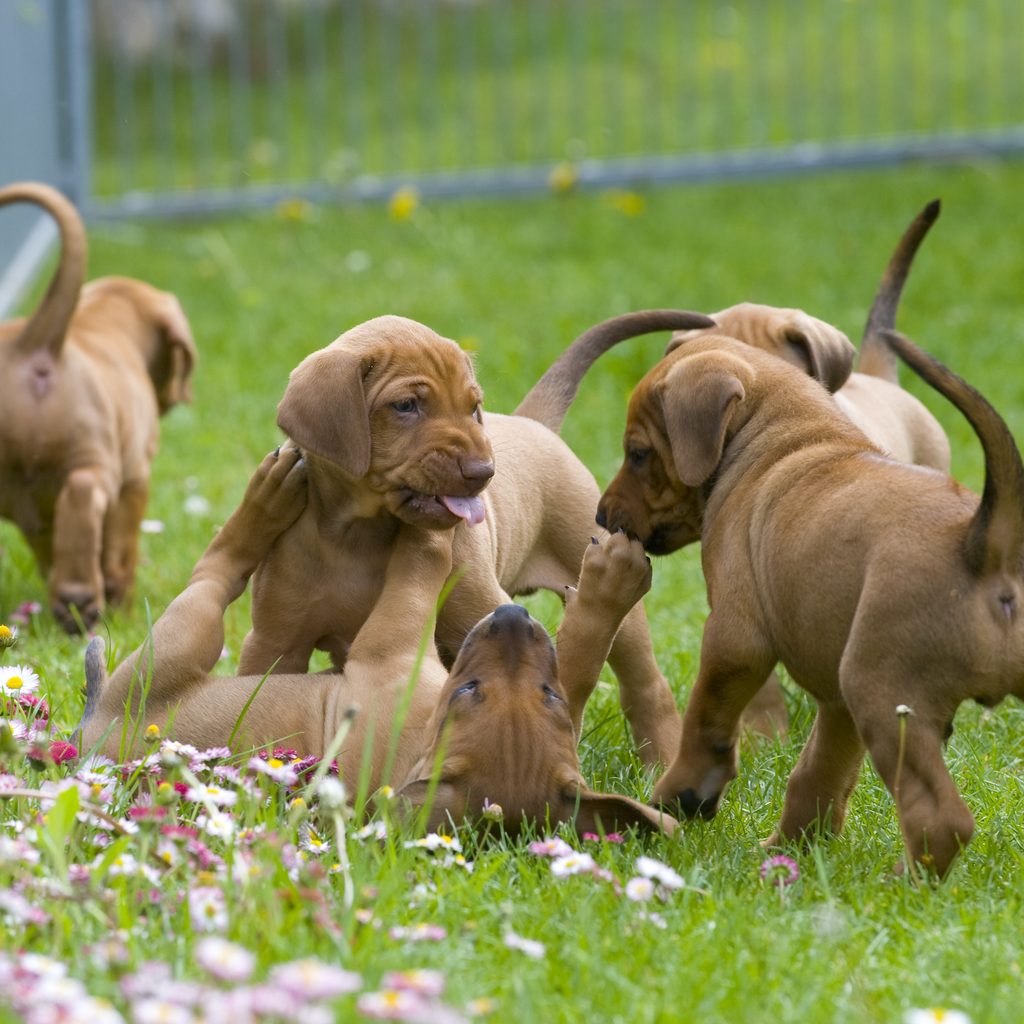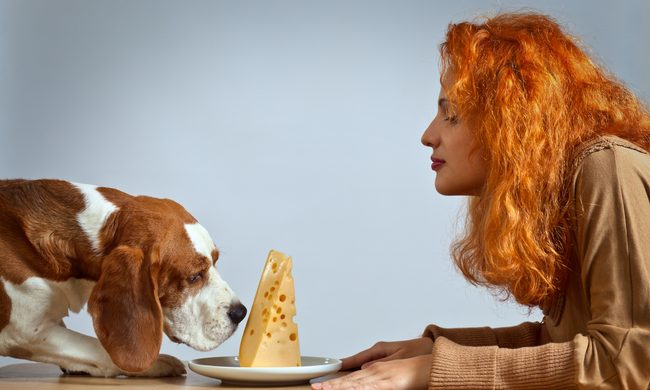What’s even cuter than one puppy? A puppy playdate!
Whether your newest furry family member is your first or one of many, the idea of introducing them to the world can seem so exciting. And you have every reason to look forward to it—the curiosity and innocence of a puppy are unlike anything else (okay, maybe human children . . .).
Still, you’ll want to make sure your puppy stays as safe and comfortable as possible throughout the socialization process, and that can sometimes mean waiting a little longer. Don’t worry, you’ll be able to schedule that puppy playdate as soon as your young buddy reaches these five milestones! Trust us, the time will fly, so enjoy every moment of puppyhood you can get!
1. Your puppy is fully weaned
It should go without saying that before you let your puppy play with other dogs, he should be ready to be away from his mother. Pups who leave their mother and littermates too early, according to the American Kennel Club, “are more likely to display problems in behavior and temperament when they’re grown, including being fearful, aggressive, or anxious; guarding their food and toys; and being highly reactive and more difficult to train.”
It’s easy to see how these kinds of issues can create tense situations while a puppy learns to socialize. Luckily, a lot of these behaviors can be improved upon during training; but even better, they can be prevented by keeping pups with their litter until about eight to 10 weeks of age (via AKC). Since a pup’s siblings are his first playmates and socialization partners, there are many reasons to let him develop alongside his first family.

2. Your puppy is fully vaccinated
Many doggie daycares, groomer facilities, and even pet sitting services require their four-legged clients to be fully vaccinated. Trust us—this is for good reason. Puppies don’t have a fully developed immune system and are much more susceptible to catching a number of illnesses, including kennel cough, distemper, and parvovirus.
Before letting your buddy loose with other pups, follow your veterinarian’s recommended vaccination schedule. You’ll want to wait until they’ve completed all rounds of their shots, too, instead of heading out for a walk as soon as they get their first jab (via PreventativeVet).
However, there is an exception. If your puppy has four-legged family members at home or other animal visitors who are not around other dogs, you can safely begin socializing them. Your older pets should be fully vaccinated before this happens, reminds the AKC, so make sure everyone is healthy and up-to-date on shots.
3. They’ve been at home for a few days
When you first bring home your puppy, your primary focus should be meeting their needs and establishing a foundation of trust between you. These two concepts do go hand in hand, but spending time together outside of eating, cleaning, and taking bathroom breaks will help your bond grow even quicker. Veterinarian Chyrle Bonk, DVM, recommends regular playtime and even beginning obedience training while you’re waiting for your dog’s vaccinations to be completed.
Taking time to build trust between you can help your little pup feel safe in new social situations. This is a surefire way to build up their confidence, too!

4. Your puppy is comfortable at home
Another reason to wait a while before introducing your puppy to other dogs is to give them a chance to acclimate to a new environment. Some pups will be more confident than others, of course, but it never hurts to give your furry friend a few days. As they get the lay of the land, you’ll probably see even more of their personality!
An overwhelmed or overstimulated puppy is not in a good mental space to socialize. Even meeting the other pets they share their new home with might be too much right off the bat, so it’s okay to wait. Using a dog gate is a quick and easy way to give your new pup some space of their own while they’re still getting used to things.
5. They’ve been around a variety of sights and sounds at home
Socialization includes introducing your puppy to other pups and playmates, but it also includes showing them new environments. After all, the idea of socialization is to help your dog learn to act appropriately in a variety of situations—and it all begins at home.
Preventative Vet suggests introducing your new fur baby to normal sights, sounds, and experiences like
- Doorbells
- People wearing hats
- Wood floors
- Carpets
- Grass
- Concrete
- Other animals and pets
- Vacuum cleaners
As they become more comfortable in familiar situations, new ones may not seem so scary.
Socializing your puppy at home and around the neighborhood can certainly take time, but the results will be oh-so-worth it. A confident, well-mannered dog is a happier and friendlier one. Before you know it, your puppy will take on introductions with ease and eagerness—all thanks to you!




